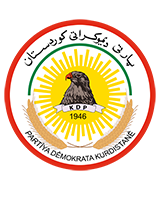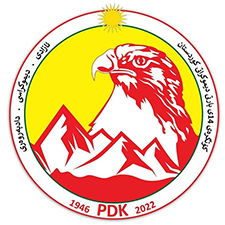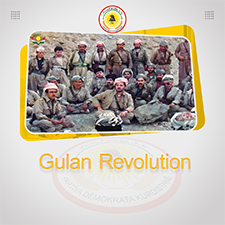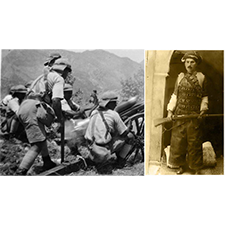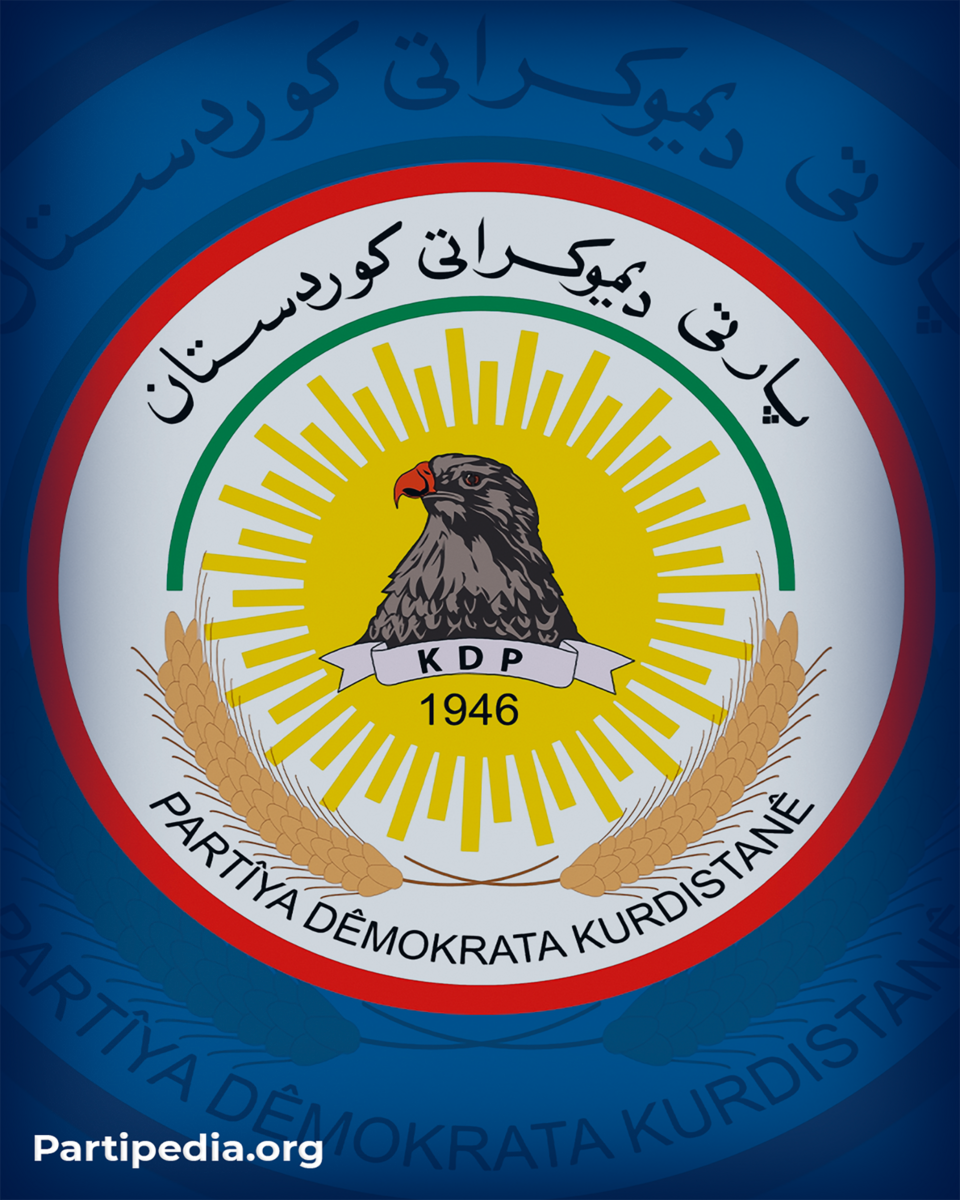Seventh Congress of the Kurdistan Democratic Party (KDP) (Kurdistan Democratic Party - Iraq - November 15, 1964), was held in Ghala village order to reorganize the affairs of the PDK. The congress was held after the party's problems with the old group of the Political Bureau, their departure to Iran and later their return, the failure of Abdulrahman Arif's government, a new round of war against the revolution in June 1966 and the June 1966 agreement with the government.
Circumstances and Causes
In February 1965, fighting resumed between the Kurds and the Iraqi government. After the resumption of fighting, the revolutionary leadership moved its headquarters from Pishdar to Balak. The Iranian government, completely disappointed in Ibrahim Ahmad and his entourage, tried to contact the revolutionary leadership and reach an agreement with them, resulting in widespread support for the Kurdish revolution against the regime authority in Iraq.
On the eve of the regime's war, a number of Kurdish-loving personalities and intellectuals inside and outside Kurdistan fell between President Mustafa Barzani and the group of the old Political Bureau who had fled to Iran. The group asked president Barzani to issue an amnesty for the olf Political Bureau members. Barzani forgave them unconditionally. On July 6, 1965, they all returned to Kurdistan, except Ibrahim Ahmad, who asked to stay in Tehran. After the return of Ibrahim Ahmad's group, the Peshmergas joined the ranks of the revolution on the order of President Mustafa Barzani and their leaders were settled in the Raqqa Valley under the supervision of Jalal Talabani. After a while, they secretly contacted the Iraqi government from the Raqqa Valley.
After the assassination of Iraqi President Abdul Salam Arif, his brother Abdul Rahman Arif succeeded him. He contacted the Kurdish revolutionary leadership directly and called for talks to end the war. The government sent a delegation Gallala to this end and they met with the Kurdish revolutionary leadership. However, the defection of members of the old political bureau group to the government disrupted the negotiations and resumed fighting. With the help of the Old Political Bureau Group, the government planned a massive offensive and resumed its attack on May 2, 1966, but the government failed in that round of battle and had no hope of victory. On June 15, 1966, he sent a delegation to Ghala, where President Barzani's headquarters was located, to negotiate a ceasefire. On June 18, they met with President Barzani and agreed that the Kurdish revolutionary leadership should send a delegation to Baghdad for talks and agreements. On June 22, a delegation of the revolutionary leadership arrived in Baghdad and on June 29, a statement of agreement was signed and announced. On October 28, 1966, President Abdul Rahman Arif came to Zrewa and met with President Mustafa Barzani.
After the June 29 agreement and the normalization of the situation in Kurdistan, the PDK leadership decided to prepare for a new party congress in order to reorganize the ranks of the party.
Holding a congress
The seventh congress was held between November 15 and 21, 1966, in the presence of 425 delegates, representing 30,000 members of the Kurdistan Democratic Party (KDP), in the secondary school of Ghala village in Erbil province. The Political Bureau presented its political report to the delegates and highlighted all the events in Kurdistan, Iraq and the region, especially the agricultural reform and insurance of companies by the Baghdad government, and the economic collapse of Iraq.
A number of important decisions were made on the organization and management of the liberated areas and a constitution was drafted for the Revolutionary Leadership Council. The congress also decided that President Mustafa Barzani sends a memorandum on the implementation of the June 29 statement to the Iraqi Presidency and the Presidency of the Council of Ministers.
In the congress, Ali Abdullah and Nuri Shaweis, two members of the political bureau of the fifth congress, who had joined the ranks of the supporters of the Mawat meeting, remained as the members of the political beauro because they did not support the Jalal-Ibrahim group. The name of the PDK remained unchanged and President Mustafa Barzani was re-elected as the party's leader. For the first time, Idris Barzani and Massoud Barzani attended the opening of the congress.
Elected members of the leadership at the seventh congress:
1- Mustafa Barzani, President
2- Habib Mohammed Karim
3- Dr. Mahmoud Osman
4- Saleh Yousfi
5- Nuri Shaweis
6- Ali Abdullah
7- Sami Abdulrahman
8- Shawkat Akreyi
9- Ahmad Atroshi
10- Yadullah Faily
11- Majid Atroshi
12- Aziz Akreyi
13- Ismail Mullah Aziz
14- Ali Sinjar
15- Naaman Jesus.
Reserve Members of the Central Committee:
1- Hashim Akreyi
2- Shafiq Amin Agha
3- Fatih Mohammed Amin.
The members of the Political Bureau were increased from five to seven and were elected by the members of the Central Committee as follows:
1- Habib Mohammed Karim, Secretary
2- Dr. Mahmoud Osman, Member
3- Saleh Yousfi, Member
4- Nuri Shaweis, Member
5- Ali Abdullah, Member
6- Sami Abdulrahman, Member
7- Aziz Akreyi, Member.
Seven members and two reserves by the delegates of the Congress were elected to the Monitoring and Follow-up Committee as follows:
1- Rashid Arif, President
2- Najmaddin Yousfi, Member
3- Mullah Haider Mohammed Hussein, Member
4- Sabri Botani, Member
5- Mullah Salih Haji Hassan, Member.
After the congress, President Mustafa Barzani assigned important tasks to a number of members of the leadership, including Mahmoud Osman, who was assigned foreign relations, Sami Abdulrahman, was assigned several political and security tasks, Idris Barzani was appointed as the head of the military bureau of the Revolutionary Leadership Council, and Masoud Barzani was entrusted with the management of the security bureau.
Another important achievement of the congress was the re-publication of the party's official newspaper, Khabat. After Masoud Barzani visited Baghdad, he took advantage of the opportunity to obtain an order to release the prisoners of 1965 and restore the newspaper's license of Khabat. A new issue of Khabat newspaper was published on April 16, 1967 under the supervision of Saleh Yousfi.
Sources:
• مسعود بارزانی، بارزانی و بزووتنهوهی ڕزگاریخوازی كورد ١٩٦١ ـ ١٩٧٥، بهرگی سێیهم، بهشی یهكهم، (ههولێر ـ چاپخانهی وهزارهتی پهروهرده ـ ٢٠٠٤ز).
• مێژووی پارتی دیموكراتی كوردستان، كۆنگره و كۆنفرانس (پرۆگرام و پهیڕهوی ناوخۆ)، دهستهی ئینسكلۆپیدیای پارتی دیموكراتی كوردستان، بهرگی یهكهم، (ههولێر- چاپخانهی رۆكسانا- ٢٠٢١).
• صلاح الخرسان، التیارات السیاسیة في كردستان العراق، قراءة في ملفات الحركات و الأحزاب الكردیة في العراق ١٩٤٦-٢٠٠١، (بیروت – مطبعة البلاغ – ٢٠٠١م).
• حبیب محمد كریم، تأریخ الحزب الدیمقراطي الكوردستاني ـ العراق (في محطات رئیسیة) ١٩٤٦ ـ ١٩٩٣، (دهوك ـ مطبعة خهبات ـ ١٩٩٨م).
• پارتی دیموكراتی كوردستان، كومیتهی ناوهندی، بهیانی كوتایی هاتنی كونگرهی حهوتهمینی پارتی دیموكراتی كوردستان، ٢٥ تشرینی دووهمی ١٩٦٦ز.
• شیركو فتح الله عمر، الحزب الدیمقراطي الكوردستاني و حركة التحرر القومي الكوردیة في العراق ١٩٤٦ ـ ١٩٧٥، (السلیمانیة ـ وزارة الثقافة في حكومة اقلیم كوردستان ـ مطبعة رون ـ ٢٠٠٤م).
• الحزب الدیمقراطي الكردستاني، المكتب السیاسي، التقریر السیاسي الی المؤتمر السابع للحزب الدیمقراطي الكردستاني، ١٩٦٦م.
• تنویه، جریدة خهبات، لسان حال الحزب الدیمقراطي الكوردستاني، العدد ٦٧١، أربیل، الأربعاء، ١٤ نیسان ١٩٩٣م.
• المنهاج والنظام الداخلي للحزب الدیموقراطي الكردستاني وتعدیلاته، أقره المؤتمر السابع للحزب سنة ١٩٦٦، (بدون مكان ـ مطبعة خبات ـ ١٩٦٦م).
• حامید گهوههری، ئیدریس بارزانی و بارزانییهكان باشتر بناسین، (ههولێر ـ چاپخانهی شههاب ـ ٢٠١٤ز).




